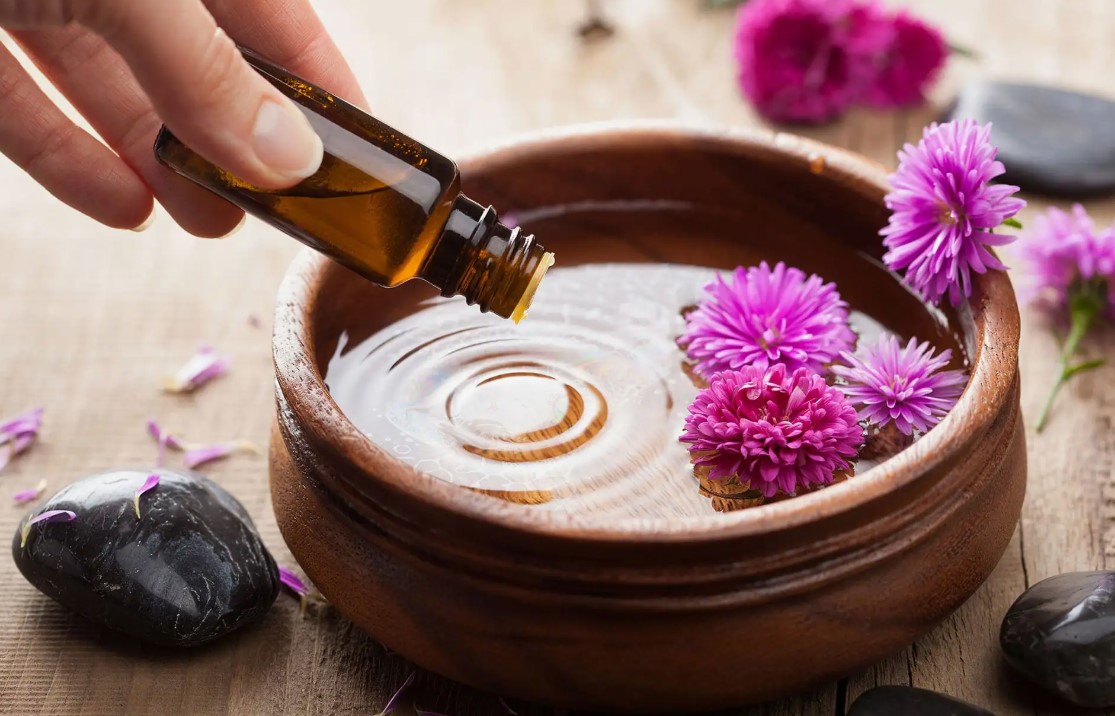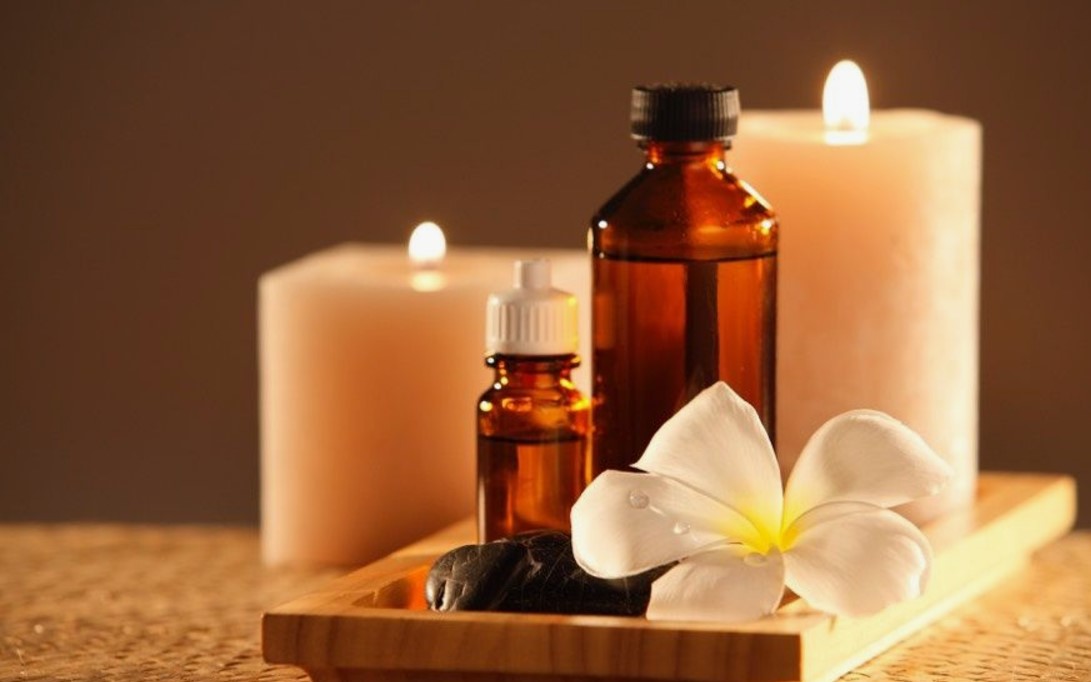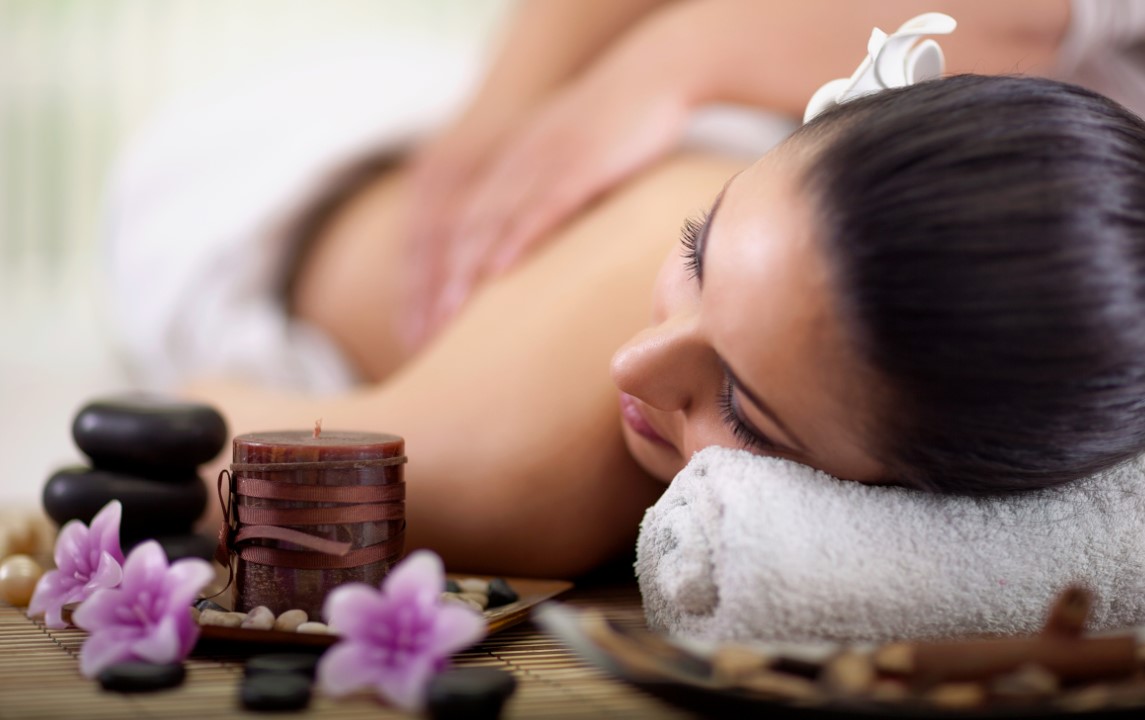Aromatherapy is a holistic healing practice rooted in ancient medicine, utilizing essential oils extracted from plants to promote well-being. This alternative treatment leverages the natural therapeutic properties of essential oils, introducing them into the body via the respiratory system, skin, or mucous membranes. Modern research increasingly supports aromatherapy’s effectiveness, making it popular worldwide for its array of benefits—from mental health support to immune system modulation and skin healing. Let’s dive into the science behind aromatherapy, the diverse types of essential oils and their effects, and how aromatherapy is applied in professional settings, such as through oil aroma massages, like those offered at EuroSpa.
The Science Behind Aromatherapy
Essential oils are volatile, aromatic compounds that plants naturally produce to attract pollinators, defend against pests, and combat diseases. These oils contain bioactive compounds, including terpenes, phenols, and alcohols, which have been shown to impact human health in various ways. In aromatherapy, essential oils can be inhaled or absorbed through the skin. Inhalation stimulates the olfactory system, sending signals to the brain’s limbic system, which regulates emotions, mood, and memory. Meanwhile, skin absorption allows these compounds to interact with the bloodstream, potentially impacting hormonal balance, immune function, and cellular repair.
Key Benefits of Aromatherapy
Aromatherapy provides several benefits, each derived from the specific properties of the essential oils used. Here are some of the primary therapeutic effects:
1. Psycho-Emotional Impact
Essential oils like lavender, chamomile, and jasmine are known to relieve stress, anxiety, irritability, and mood swings. For instance, lavender oil is recognized as a natural antidepressant, offering a calming effect that soothes nervous tension and overexcitement. Aromatherapy can enhance mental clarity, uplift spirits, and aid relaxation, making it valuable in addressing mild to moderate mental health concerns.

2. Anti-Inflammatory and Antiseptic Properties
Many essential oils have immunomodulatory, bactericidal, and antiviral properties. Oils such as tea tree, eucalyptus, and clove possess antimicrobial qualities, making them effective for treating infections or promoting wound healing. These properties can help the body resist infections and support recovery during illness.
3. Central Nervous System Effects
Aromatherapy can either relax or stimulate the central nervous system, depending on the oils used. Oils like valerian and chamomile are known for their calming effects, while citrus oils (such as orange and lemon) and rosemary invigorate and energize. This versatility makes aromatherapy suitable for both relaxation and concentration, depending on individual needs.
4. Endorphin Stimulation
Certain essential oils help release endorphins—often referred to as “happiness hormones”—which can induce feelings of euphoria and relieve pain. This makes aromatherapy a popular tool in both emotional well-being and pain management therapies.
5. Preventive Health and Immune Support
Regular use of essential oils can aid in the prevention of infections, making aromatherapy effective in therapeutic and rehabilitation contexts. Certain oils stimulate immune function, making the body more resilient to pathogens and helping to prevent recurrent infections.
Types of Essential Oils and Their Uses
Essential oils are highly versatile, each offering unique benefits. Here are some common types and their primary therapeutic uses:
🡪Tonic Oils: Orange, geranium, lemon, rosemary, and sage are energizing oils that can boost mood and invigorate the body.
🡪Relaxing Oils: Valerian, chamomile, jasmine, lavender, and frankincense help calm the mind and reduce anxiety.
🡪Refreshing Oils: Fir, lemon, mint, and tangerine revive the senses and reduce feelings of fatigue.
🡪Antiseptic Oils: Eucalyptus, tea tree, clove, and lavender have potent antimicrobial properties.
🡪Soothing Oils: Chamomile, lemon balm, and jasmine offer calming effects, especially useful in stress relief.
🡪Wound Healing and Anti-Inflammatory Oils: Yarrow, camphor, and arnica support tissue repair and reduce inflammation.
🡪Expectorant Oils: Fennel, oregano, and anise ease respiratory issues by loosening mucus.
🡪Diuretic Oils: Parsley, thyme, and juniper aid in flushing out excess fluids.
🡪Harmonizing Oils: Sandalwood, jasmine, and rose balance mood and promote inner peace.
🡪Rejuvenating Oils: Rosehip, jojoba, and lavender are used to maintain youthful, radiant skin.
Carrier oils like coconut, jojoba, and avocado serve as base oils, diluting essential oils and making them safe for skin application.
Aromatherapy Techniques
Aromatherapy can be applied through several methods, each offering unique advantages:
1. Indirect Inhalation
In this method, essential oil is diffused into the room or added to a cloth, allowing the patient to breathe in the fragrance. This gentle technique is suitable for general relaxation and creating a calm atmosphere.
2. Direct Inhalation
For a more focused approach, direct inhalation involves breathing in essential oils through an individual inhaler. The oil is typically mixed with hot water, allowing the patient to inhale the vapors directly. This method is effective for respiratory issues and sinus relief.
3. Massage (Aroma Massage)
In aromatherapy massage, essential oils are diluted in a base oil and applied to the skin, offering both the benefits of massage and the therapeutic effects of essential oils. Aroma massage combines physical relaxation with mood enhancement and is popular for reducing stress, improving mood, and enhancing skin health.

Aroma Massage: Combining Touch and Fragrance for Enhanced Well-Being
Aroma massage is a holistic treatment combining massage techniques with the application of essential oils. During an aroma massage, essential oils in a carrier oil (such as avocado or jojoba) are chosen based on the desired therapeutic outcome. The massage can be:
🡪General: Targeting the entire body for comprehensive relaxation.
🡪Local: Focusing on specific areas, such as the back or legs, to address localized tension or pain.
Benefits of Aroma Massage
1. Physical and Mental Rejuvenation
Aroma massage aids in restoring energy, alleviating fatigue, and improving overall mood. The essential oils stimulate metabolic processes, enhancing tissue nutrition and immune function.
2. Stress and Anxiety Relief
By promoting relaxation, aroma massage helps relieve stress and nervous tension, positively impacting the nervous system.
3. Skin Nourishment and Rejuvenation
Aroma massage supports skin health, leaving it supple and radiant. Essential oils can promote hydration and elasticity, making the skin look well-nourished and vibrant.
4. Contraindications and Cautions
While highly beneficial, aroma massage should be avoided during pregnancy, breastfeeding, acute viral illnesses, and certain cardiovascular or skin conditions. Essential oils can cause allergic reactions, so it’s essential to check for sensitivity before a full session.
Experience Aroma Massage at EuroSpa in Dubai
EuroSpa in Dubai offers a specialized aroma massage experience, combining therapeutic techniques with a carefully curated blend of essential oils. Their skilled therapists tailor each session to individual needs, aiming to harmonize the body and mind. A 60-minute oil aroma massage at EuroSpa is available for 470 AED, offering an opportunity to enjoy the profound benefits of this relaxing and revitalizing treatment.
Conclusion
Aromatherapy is an ancient practice that has evolved into a science-backed method of promoting physical, mental, and emotional health. With its diverse applications—from inhalation to massage—aromatherapy offers an accessible and natural approach to wellness. Whether you are seeking relief from stress, immune support, or skin rejuvenation, the world of essential oils has something to offer. Aromatherapy and aroma massage are valuable tools for enhancing life quality, inviting a sense of peace and well-being through the healing power of nature.




